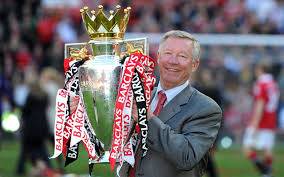Sir Alex Ferguson is undeniably one of the history of football. His legendary career spanned over 26 years at Manchester United, during which he achieved unprecedented success and left an indelible mark on the sport.
Ferguson's journey began in 1986 when he took charge of Manchester United, a club that had been struggling to maintain its status as a football powerhouse. In his early years, he faced numerous challenges and criticism, but he remained resolute in his pursuit of success.
The turning point came in the early 1990s when Ferguson won his first major trophy with Manchester United, the FA Cup. This victory marked the beginning of an era of dominance for the club. Over the next two decades, Ferguson led the team to an astounding 13 English Premier League titles, making Manchester United the most successful club in the history of the competition.
Ferguson's success was not limited to domestic competitions. He also guided Manchester United to two UEFA Champions League titles, solidifying their reputation as a force to be reckoned with on the European stage. Under his leadership, the club consistently qualified for the Champions League and reached the knockout stages on numerous occasions.
One of Ferguson's greatest strengths was his ability to build and rebuild winning teams. Throughout his tenure, he nurtured a number of talented players and transformed them into world-class stars. The famous Class of '92, which included players like David Beckham, Ryan Giggs, Paul Scholes, and the Neville brothers, was a testament to his ability to identify and develop young talent.
Ferguson's impact extended beyond the playing field. He instilled a winning mentality within the club, demanding the highest standards from his players and staff. His relentless pursuit of success permeated every aspect of Manchester United, creating a culture of excellence that has endured to this day.
In addition to his achievements on the pitch, Ferguson also revolutionized the way football clubs are run. He embraced sports science, modern training methods, and data analysis, setting new standards for professionalism within the sport. His visionary approach to management paved the way for future generations of managers and contributed to the overall evolution of football.
In 2013, after more than two decades at the helm of Manchester United, Ferguson announced his retirement from management. His departure marked the end of an era and left a void that has yet to be fully filled. His remarkable legacy continues to be celebrated by fans and pundits alike, with many considering him the greatest manager of all time.
Sir Alex Ferguson's impact on football cannot be overstated. His unrivaled success, unwavering determination, and fierce passion for the game have left an indelible mark on the sport. His legendary career will forever be remembered as a testament to his extraordinary managerial prowess and his ability to transform a club.




No comments yet
Be the first to share your thoughts!